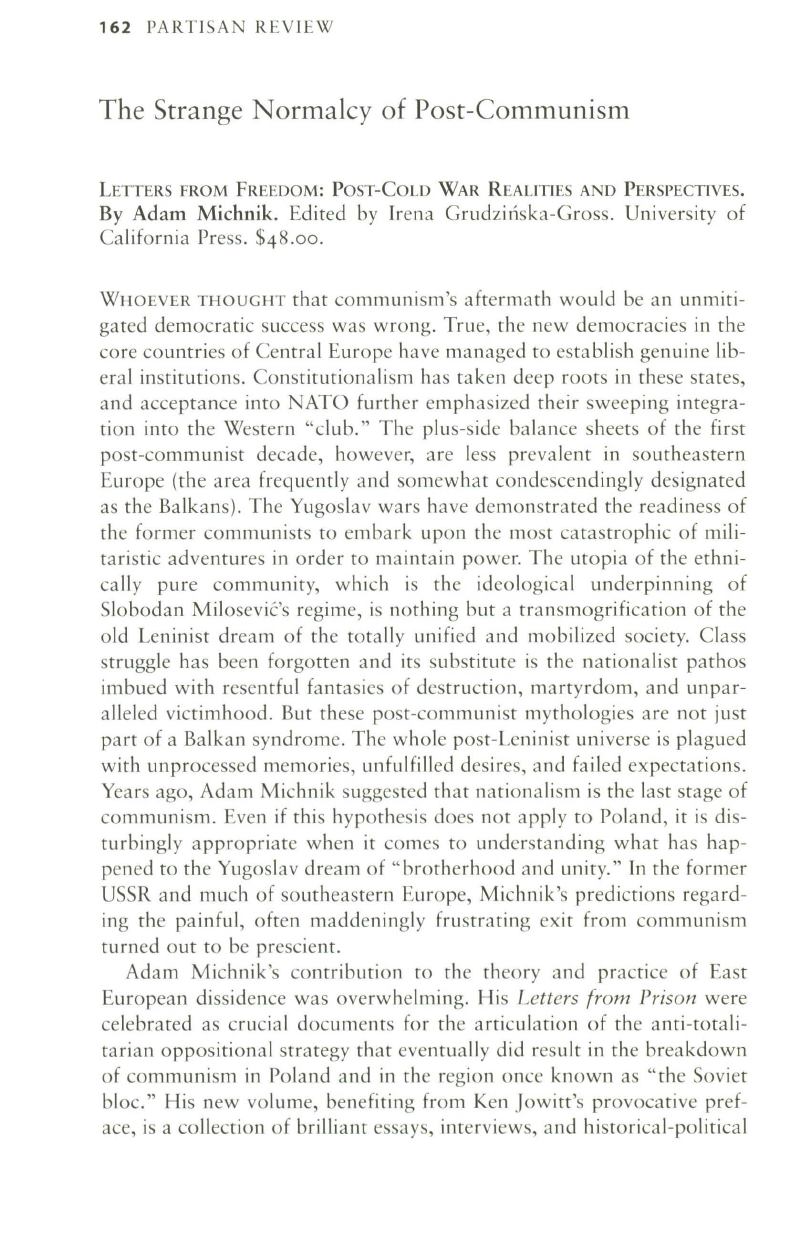
162
PARTISAN REVIEW
The Strange Normalcy of Post-Communism
LETTERS FROM FREEDOM: POST-COLD WAR REALITIES AND PERSPECTIVES.
By Adam Michnik. Edited by Irena Grudzinska-Gross. University of
California Press.
$48.00.
WHOEVER THOUGHT that communism's aftermath would be an unmiti–
gated democratic success was wrong. True, the new democracies in the
core countries of Central Europe have managed to establish genuine lib–
eral institutions. Constitutionalism has taken deep roots in these states,
and acceptance into NATO further emphasized their sweeping integra–
tion into the Western "club." The plus-side balance sheets of the first
post-communist decade, however, are less prevalent in southeastern
Europe (the area frequently and somewhat condescendingly designated
as the Balkans). The Yugoslav wars have demonstrated the readiness of
the former communists to embark upon the most catastrophic of mili–
taristic adventures in order to maintain power. The utopia of the ethni–
cally pure community, which is the ideological underpinning of
Slobodan MiloseviC's regime, is nothing but a transmogrification of the
old Leninist dream of the totally unified and mobilized society. Class
struggle has been forgotten and its substitute is the nationalist pathos
imbued with resentful fantasies of destruction, martyrdom, and unpar–
alleled victimhood. But these post-communist mythologies are not just
part of a Balkan syndrome. The whole post-Leninist universe is plagued
with unprocessed memories, unfulfilled desires, and failed expectations.
Years ago, Adam Michnik suggested that nationalism is the last stage of
communism. Even if this hypothesis does not apply to Poland, it is dis–
turbingly appropriate when it comes to understanding what has hap–
pened to the Yugoslav dream of "brotherhood and unity." In the former
USSR and much of southeastern Europe, Michnik's predictions regard–
ing the painful, often maddeningly frustrating exit from communism
turned out to be prescient.
Adam Michnik's contribution to the theory and practice of East
European dissidence was overwhelming. His
Letters from Prison
were
celebrated as crucial documents for the articulation of the anti-rotali–
tarian oppositional strategy that eventually did result in the breakdown
of communism in Poland and in the region once known as "the Soviet
bloc." His new volume, benefiting from Ken Jowitt's provocative pref–
ace, is a collection of brilliant essays, interviews, and historical-political


